From Sandpapergate to social media abuse: David Warner opens up on life before, during and after Test cricket
David Warner was a naturally divisive figure – but would he change his ways if he had the chance? And did the constant negativity get to him? JAMIE PANDARAM sat down exclusively with the retired Test star to find out.
Cricket
Don't miss out on the headlines from Cricket. Followed categories will be added to My News.
Perhaps now that David Warner is out of the Test cricket limelight, he will finally unveil the toll all of the nasty comment pieces and social media slights took on him?
“I get excited that people keep writing negative stuff about me because they’re up at night thinking about me,” Warner grins, leaning back in his chair with a glass of champagne in hand.
The next chapter of Warner’s life will be more glass clinking and less pitch tapping.
The 37-year-old will continue to play one-dayers and Twenty20s for Australia, and in rich T20 leagues around the world as he is doing in Dubai this weekend, but the rigours of the five-day Test matches are firmly behind him.
Often, once the realisation for an athlete has set in that they’ll no longer hold the same public attention, revelations will emerge about the private pain they hid in the spotlight.
Not for Warner, who describes himself as the most criticised Australian cricketer since Shane Warne, but has no qualms for who he was and is, and those who judged him for it.
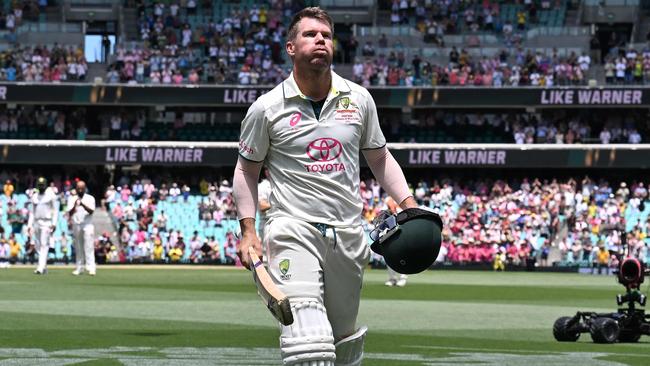
“People always ask me, ‘How do you distract yourself from what’s being spoken about you, and be able to go out there and perform?’ It all falls on deaf ears with me,” Warner said.
“People can criticise me as much as they want. I don’t care. I literally do not care.
“You’re wasting your breath. It does not bother me one bit. And I get excited that people keep writing negative stuff about me because they’re up at night thinking about me.
“I’m sleeping while they’re thinking about me, thinking about what to write on Twitter, they’re thinking about me when they’re writing. That’s a great thing, I actually feel great about that.
“Whether it’s good or bad, I’m sleeping easy and they’re all thinking about me, so I don’t know what their wives or husbands feel like when they’ve gone to bed and they’re thinking about me.”
Warner officially called time a fortnight ago at the Sydney Cricket Ground, ending a 112-Test career, scoring 8786 runs and finishing with a batting average of 44.59. He is fifth on the all-time list of Australian batters, behind only luminaries Ricky Ponting, Allan Border, Steve Waugh and Steve Smith.
His strike rate of 70.19 is superior to any other Australian top 15 run-scorer in the Test arena, telling the tale of how he approached the craft.
But whether it was his aggressive approach to batting or rival players on the field, Sandpapergate, or bullish comments in the media, Warner was a naturally divisive figure.
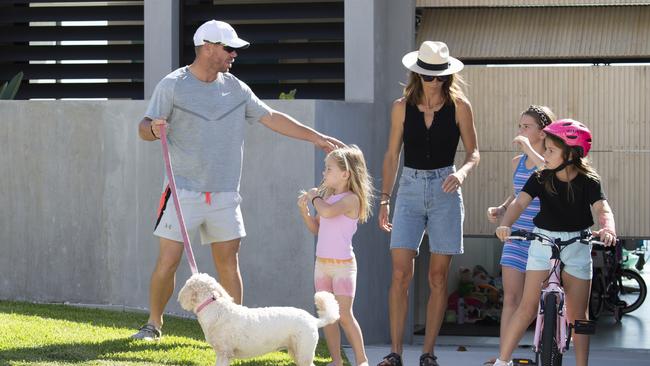
“I’m probably an interesting case study,” Warner said. “If it was someone else, how would they react, or how would it be the next five or 10 years with certain players? Not really anyone in Australia since Shane Warne has probably copped as much criticism. And we’re chalk and cheese as well, in terms of the off-field antics that were involved.
“From my perspective, it’s a good thing when people are talking about you. But if people keep going at you, you just don’t notice it. When you open the paper every day and just see your name, it’s like, surely some people have just got to let it go, surely they’re sick of talking about thinking about you.
“But for me, I think it’s about my upbringing, just being tough, working hard, seeing my parents work hard to put food on the table, me working at 14 and nine months at Woolworths for seven years, really enjoying it.
“I accepted the fact that you’re going to fail very early on. So in everything you do, you’re going to fail, and the only way to overcome that is get back up and walk forward, and try your best.
“So it was inevitable that no matter what I did, put my mind to, I’d always try to be the hardest worker, no matter what I was doing.”
But if afforded the luxury of going back in time, Warner would change one thing.
“I would have changed early doors, I wouldn’t have been that attack dog,” he said.
“If IPL came around earlier, in my mind I found that the more I get to know people, the more I wouldn’t actually go at someone. And I felt like I was actually directed to be that person, to go out there and attack opposition players and get under their skin.
“Yeah it made me play better because they came at me, but it wasn’t what I’ve always set out to do.
“I think just because that was me growing up and being attacked verbally, playing grade cricket, that’s all you knew growing up.
“What you play around and what you play in teams with, if people are going against you, you just think it’s acceptable to do that.
“So that was almost like the role that I was encouraged to take up. And that’s probably one thing that I reckon I would speak up and change in my career, definitely.”
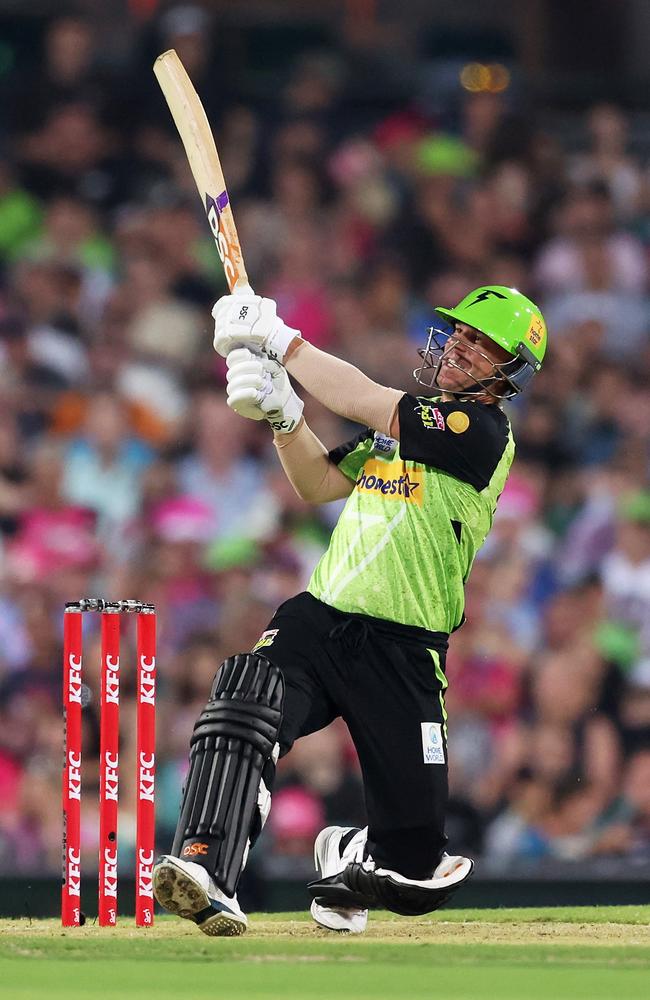
And after the Sandpaper scandal in South Africa, for which Warner was given a 12-month ban from cricket and stripped of any chance of captaining the national team, resentment still lingers for a man already thinking about coaching beyond playing.
“What’s the difference between captaining and coaching? You’ve got more responsibility as a coach, wouldn’t you think so?” Warner wondered.
“I don’t know, I’m not sure, I don’t know how to answer. It’s been five years and I still don’t know how to answer the question. It’s just something that’s hard to get my head around.
“Apparently I will be able to coach if allowed to in Australia. But I can’t captain. So yeah, I’m not sure what it is.
“It’s under contract with Australia. It’s a leadership position, so I’m not sure, I just don’t know, very bizarre.”
Even on the stage of his final Test, Warner’s character was being questioned when his baggy green cap went missing. It now seems a case of mistaken placement rather than theft, with the cap likely found in an upside down bag that wasn’t checked at the hotel.
But that didn’t stop some punters from theorising that Warner had staged the whole drama for more publicity during his farewell match.
“You can’t control that, you know? It doesn’t matter what I say or what I do, it’s not going to be good for 50 per cent of people and it might be OK for 50 per cent of the people,” Warner said.
“So I take it with a grain of salt.
“The sole purpose was to try to find where it was. Our security team had got it and that’s all I know about it. So from my perspective, that’s all closed, but I’m just thankful to get it back.”
And thankful to get some of his life back.

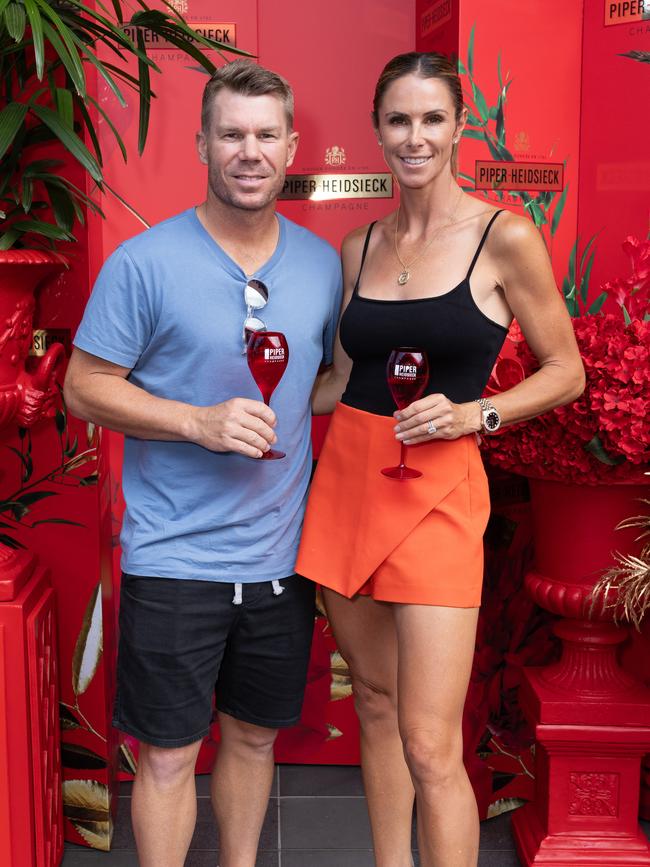
After years on the road, Warner now has more time to spend with wife Candice and their three daughters.
A glimpse of that was on display at the Australian Open this week, with Warner, Candice and their two eldest, Ivy and Indi, watching the girls’ favourite player, Coco Gauff, in action.
Warner was a guest at the Piper-Heidsieck champagne house positioned outside Rod Laver Arena, and sampled bubbles with friend Benoit Collard, chief executive of the winemaker, while the pair discussed fine drops and which glasses to drink them from.
Now that he’s out of the Test cricket bubble, Warner hopes to connect with those who formed a negative opinion on him from afar.
“No one gets to see you away from the ground, away from the field you’re pretty protected inside that ring,” he said.
“You’re not going out to a pub all the time.
“You’re not out in the open all the time because you’re always constantly busy when you’re a cricketer. You’ve got recovery, you’ve got a lot of other things that come with being an athlete.
“Now that you’ve got time to sit back, reflect and enjoy life, I’ll be out in the public more. So I’ll be able to speak to anyone that comes up to me and wants to have a chat.
“If I’m in a pub and you want to have a beer with me, come up and have a beer, see a different side to me.”
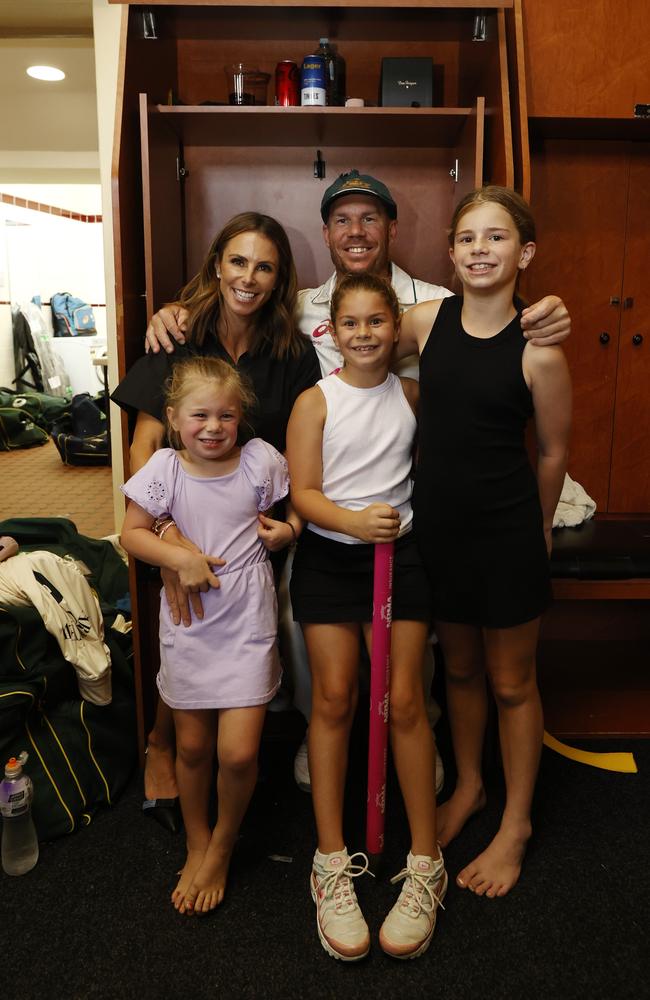
Warner says marriage and fatherhood have completely transformed him.
“I never thought a woman would change my life, in the way that Candice has,” he said.
“So a lot of credit goes to her, she changed my life around. The way that I am with my girls, I owe a lot to the way that she has disciplined me. And I think that reflects upon the girls as well.
“And my mum as well, bringing me up. I know I’m a boy, but mum’s nurturing and nature probably reflects on my nature with my girls.”
But family man Warner won’t completely disappear from view.
We’ll see his development as a commentator of the game – he’s signed a deal with Fox Sports and Kayo to cover Test matches and the Big Bash League.
“It’d be silly of me to go in there and go, ‘I’m an expert in the game’, but you’re not because you don’t usually see it from up there (in the commentary box), you see it from a cricket perspective and how you would play the game,” Warner said.
“So from my perspective I’ll sit back, understand how they deliver it and educate the people watching as well. And I think that’s where I would like to have some success in educating people about why certain people are playing the way they are in certain parts of the game, why bowlers are thinking and setting fields the way they do. I want to actually educate people more about situations in the game.”
As for that awkward balance in critiquing players he’s played alongside, Warner is likely to commentate as he lives: “I’d rather be someone who gives it all and says it how it is, rather than someone who betrays themselves.”
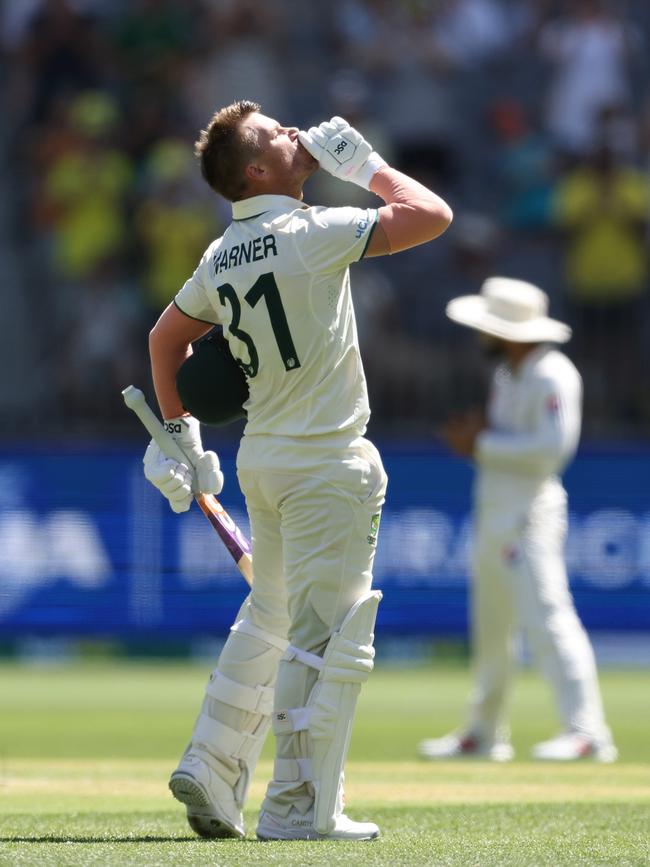
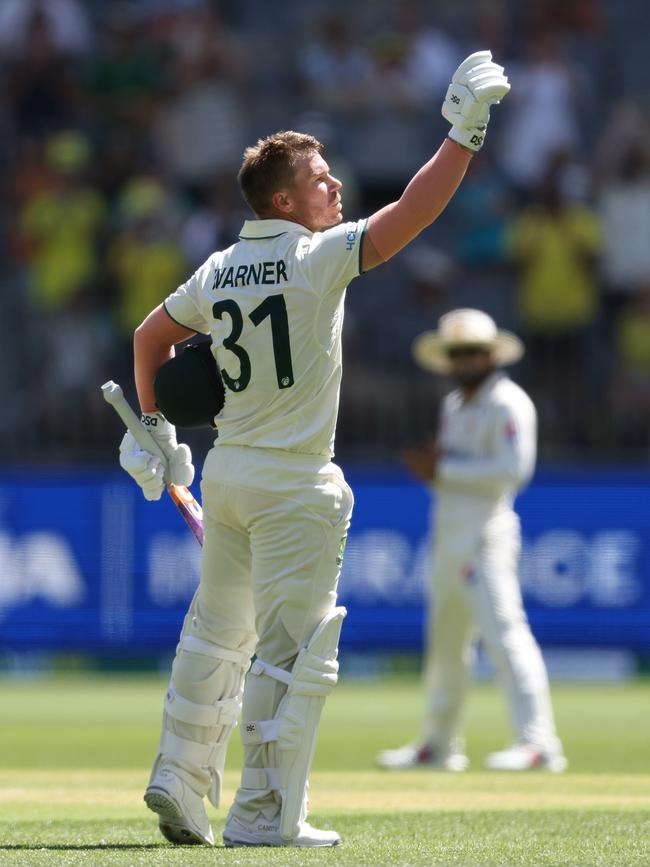
Now he’s on the other side, Warner is reflecting on his often tenuous relationship with the media and is grateful for the coverage, good and bad.
“I know our job is hard, but the job from a media perspective isn’t easy as well,” Warner said.
“Sometimes you become close to journalists, you become close to TV personalities, but they’ve always got to critique what you do. So I think if you learn to take that with a grain of salt, and know they don’t generally mean what they say.
“It’s a relationship that some people can think is untenable, not sustainable, but it is because at the end of the day, you’re going to be writing good stories, going to be writing bad stories, but it’s your job and my job is to go out there and perform.
“If I don’t perform, you’re gonna criticise me. So as an athlete, we’ve got to thank you guys for what you do because we wouldn’t be out there, our names wouldn’t be out there, the game of cricket wouldn’t be out there unless you’re reporting on it.”
More Coverage
Originally published as From Sandpapergate to social media abuse: David Warner opens up on life before, during and after Test cricket





